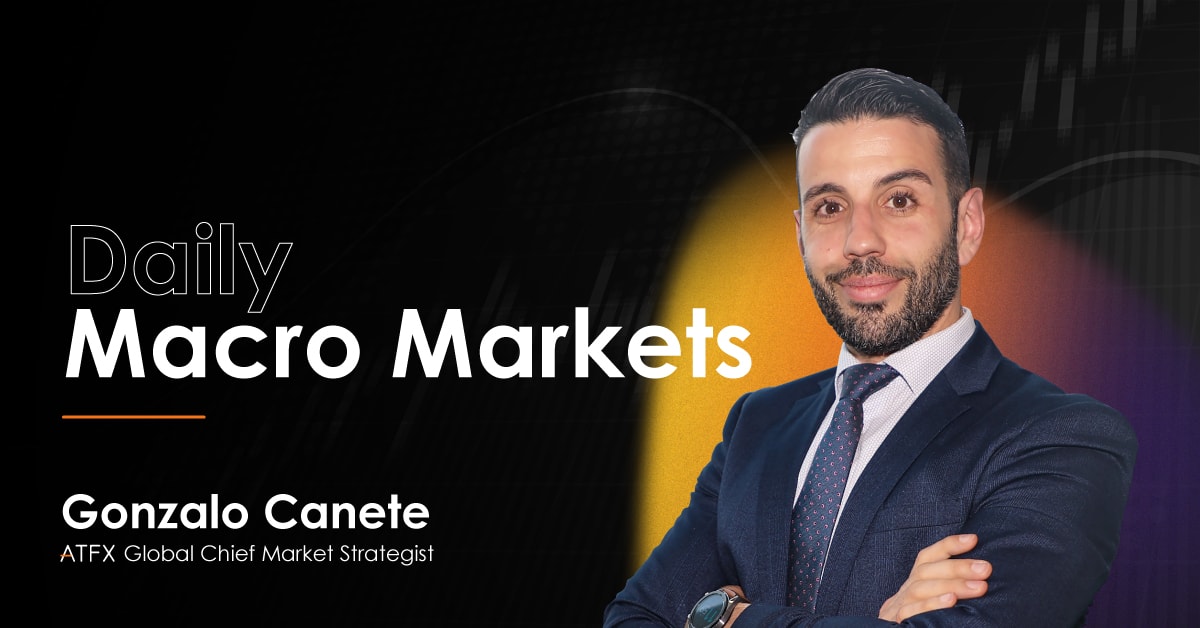Macro-News round-up
#MarketNews
🇯🇵 Japan: Amidst persistent worries about potential currency intervention, yesterday, the Bank of Japan maintained interest rates at their current level and clarified its stance regarding bond purchases. As a result, the yen hit a new 34-year low. Through fiscal 2026, the central bank expected inflation to stay above or close to its target. If its predictions come true, it will modify its policy settings.
🇪🇺 Europe: Christian Noyer, a former European Central Bank policymaker, said the ECB doesn’t need to match the Federal Reserve’s moves and can be out of sync for several quarters. There can be a gap of months or quarters between the ECB and Fed adjusting rates, according to Noyer. The eurozone economy faces greater risks from the war in Ukraine and energy crisis, which is the underlying cause of their current recessionary data for economies such as Germany.
💰 Fabio Panetta cautioned that if cuts aren’t implemented quickly, a return to extremely low interest rates might be necessary. According to the head of the Italian central bank, the euro-zone economy requires new stimulus in the form of monetary policy easing, which would also reduce the likelihood of inflation falling short of the 2% target. According to him, the ECB shouldn’t face any challenges because the Federal Reserve hasn’t loosened policy.
🇺🇸 US Technology Sector: With their most recent quarterly results, the corporations exceeded Wall Street expectations, driven in part by a rise in cloud revenue due to the increasing usage of AI services. As a result, stock prices rose in late trade, with Microsoft up 6.3% and Alphabet rising as high as 17%. Microsoft has teamed up with startup OpenAI to challenge Google’s two-decade monopoly on internet search, and the two companies are engaged in a vigorous war for supremacy in the field of artificial intelligence.
💵 Currency War is back: Trump’s advisors are researching ways to strengthen the dollar’s position as the world’s reserve currency. One such strategy is to impose dollar sanctions on associates or competitors who actively look for methods to conduct bilateral trade in currencies other than the dollar. Other options include tariffs, export restrictions, and charges for currency manipulation.
🇨🇳 Chinese trade Tensions: After three rounds of discussions, China’s top legislature approved The Tariff Law on Friday, sending a clear message to its trading partners that should they impose tariffs on the exports of the world’s second-biggest economy, Beijing will not be able to withstand the blow. Washington and Brussels are pursuing Beijing over excess industrial capacity. The West’s trade war with Beijing, which began with Washington’s import tariffs in 2018, is taking a new turn as concerns over China’s industrial overcapacity flooding the EU with low-cost goods grow. With this law, China would be looking for instruments to counteract and dissuade economies such as the United States or Europe from applying restrictive measures to their trade. This new law would make it easier for China to respond with similar measures in the event of trade tensions. Not good for world trade and market growth.
🇨🇭 Swizerland: SNB President Thomas Jordan warned that global events continue to threaten Switzerland’s price stability despite its strong record on inflation. Jordan’s comments came in his last speech to SNB shareholders before stepping down from his role. Jordan emphasized ongoing risks from supply chain issues, commodity prices and currency movements. Inflation in Switzerland fell to 1% in March, and the Swiss National Bank lowered its interest rate by 25 basis points, from 1.75% to 1.50%.
🔒 New regulatory control on Crypto assets: The EU Parliament has banned unidentified self-custody crypto wallets for transactions within the region. Some argue the ban may disproportionately impact law-abiding citizens and hinder financial privacy. It could also pose barriers to innovation and adoption in the region. Exchanges like Binance and OKX have delisted privacy coins for European users due to the new rules. Exchanges like Binance and OKX have delisted privacy coins for European users due to the new rules. The move is part of the EU’s broader efforts to curb money laundering and illicit flows. You wonder what are illicit movements? Everything you do that the government cannot see.
💱 In this regard, the US authorities point in the same direction. The FBI warns Americans against using cryptocurrency money transmitting services that are not registered as Money Services Businesses (MSB) according to a new United States federal law. Exchanges should collect KYC as required to avoid inadvertently using a non-compliant service.
🌏 Geopolitics:
🌐 A NATO for Asia:the US seems to be quietly moving in this direction through intensifying bilateral security cooperation in the region. The existing AUKUS pact between the US, UK and Australia could form the nucleus of a broader alliance, with Japan signaling interest in joining. Other partners like Canada, South Korea and the Philippines may also be incorporated over time through expanded cooperation. A formal “NATO of Asia” may still be premature, but the US is laying the groundwork for a collective security architecture through expanded cooperation.
🛡️ NATO countries like Poland, France, UK and Finland are deploying more troops to Ukraine, though they say they are not combat soldiers. If these troops engage in fighting against Russia, their presence should be seen as actively participating in the conflict. NATO wants to fill gaps in Ukraine’s forces with “advisers” as Russia tries to collapse their army before 2024. The US entry could plunge the region into WW3.
🇫🇷 Macron rebels: Surprisingly, Manuel Macron’s speech to the Nation, advocated building a Europe independent of the United States, betting on a multipolar order, like the one so often called for by Putin. “We must show that we are a balancing power that speaks to the rest of the world and that rejects the bipolar confrontation in which other continents seem to be immersed.” he has openly criticized both China and the United States: “The two major international powers have decided to stop respecting the rules of trade. We want trade that benefits us, but others are starting to change the rules of the game, they are over-subsidizing, from China to the United States of America”.

